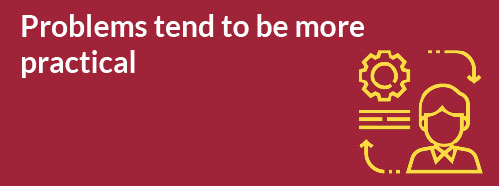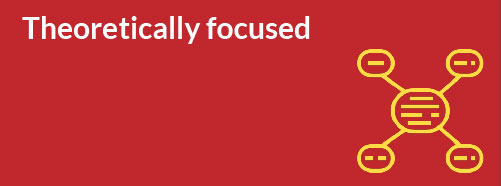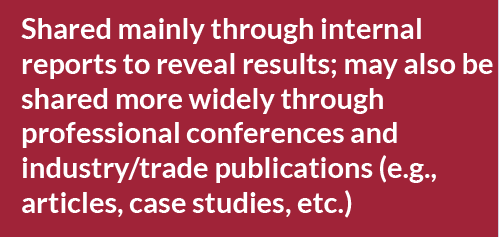Academic research and professional research deal with research but in a different way.
Academic Research is defined as a “Systematic investigation into a problem or situation, where the intention is to identify facts and/or opinions that will assist in solving the problem or dealing with the situation”. This academic or scholarly research focuses on research goals/questions that arise from independent researchers. It uses formal, scientific and systematic procedures to discover answers. The scholarly research is guided by an already existing theory in order to reject or support the theory.The term ‘research’ is applied in so many ways in our daily life, from our quest of customer knowledge to writing a PhD level research, to exploring a problem at work. Research is a systematic process of collecting, analysing and interpreting information (data) in order to better understand a phenomenon about which we are interested or concerned. It is a lengthy process, focused, specific, intensive, accumulative and educational, and is not mere information gathering, transportation of facts from one location to another and rummaging for information.

| Academie Research | Professional Research | ||
 |
 |
||
 |
 |
||
 |
 |
||
 |
 |
||
 |
 |
||
 |
 |
||
 |
 |
||
 |
 |
||
On the other hand, professional research is defined as work performed to advance an individual’s profession. It is a form of communication produced in a professional manner in order to facilitate work. Professional research focuses on research goals/questions that emerge from business requirements. It may or may not use the formal, scientific and systematic procedures to discover answers. It is not grounded in theories and may not require a representative sample. Here, we shall see the difference between academic research and professional research. The common differences between academic research and professional research are listed below.
| Academic Research | Professional Research |
|---|---|
| Also called as Scholarly Research Seeks to add to a larger “body of knowledge” | Also called as Applied Research Seeks to find solutions to instant problems and issues |
| Questions tend to be more conceptual | Problems tend to be more practical |
| Theoretically focused | Organizationally focused |
| Findings are generally made public | Findings are generally kept private |
| Results generally spur ideas and questions for future research | Results are generally used internally to make decisions and set up strategy |
| Assessed through peer review by means of academic discipline standards | Assessed by client-organisation and/or industry standards |
| Shared primarily through academic writings (doctoral dissertation, thesis, dissertation research, scholarly journals, academic conferences & presentations, academic articles and other publications (e.g., books) | Shared mainly through internal reports to reveal results; may also be shared more widely through professional conferences and industry/trade publications (e.g., articles, case studies, etc.) |
- Questions asked
- Problems established
- Phenomenon observed
- Seeks to validate the field and profession
- Draws upon a much larger research community
- Results bring in new information/knowledge
- Uses widely accepted research methods (i.e., scientific methods)
- Adheres to ethical standards
Also, academic or scholarly research writing worries more about methodology as it needs to be scientifically validated. It generally circulates within the academy, and has an objective stance, clearly states the importance of the topic, and is managed with sufficient detail so that other academic researchers/scholars may also try to replicate the results. Academic research writing focuses on dissertation research and dissertation writing Whereas, professional research writing is more focused on the use of the information received and is less worried about methodology, and even validation seems to be natural. It uses particular language to communicate information that is easily understood by its target audience, and it may be managed to inform, instruct, persuade, debate, stimulate, or encourage action.
